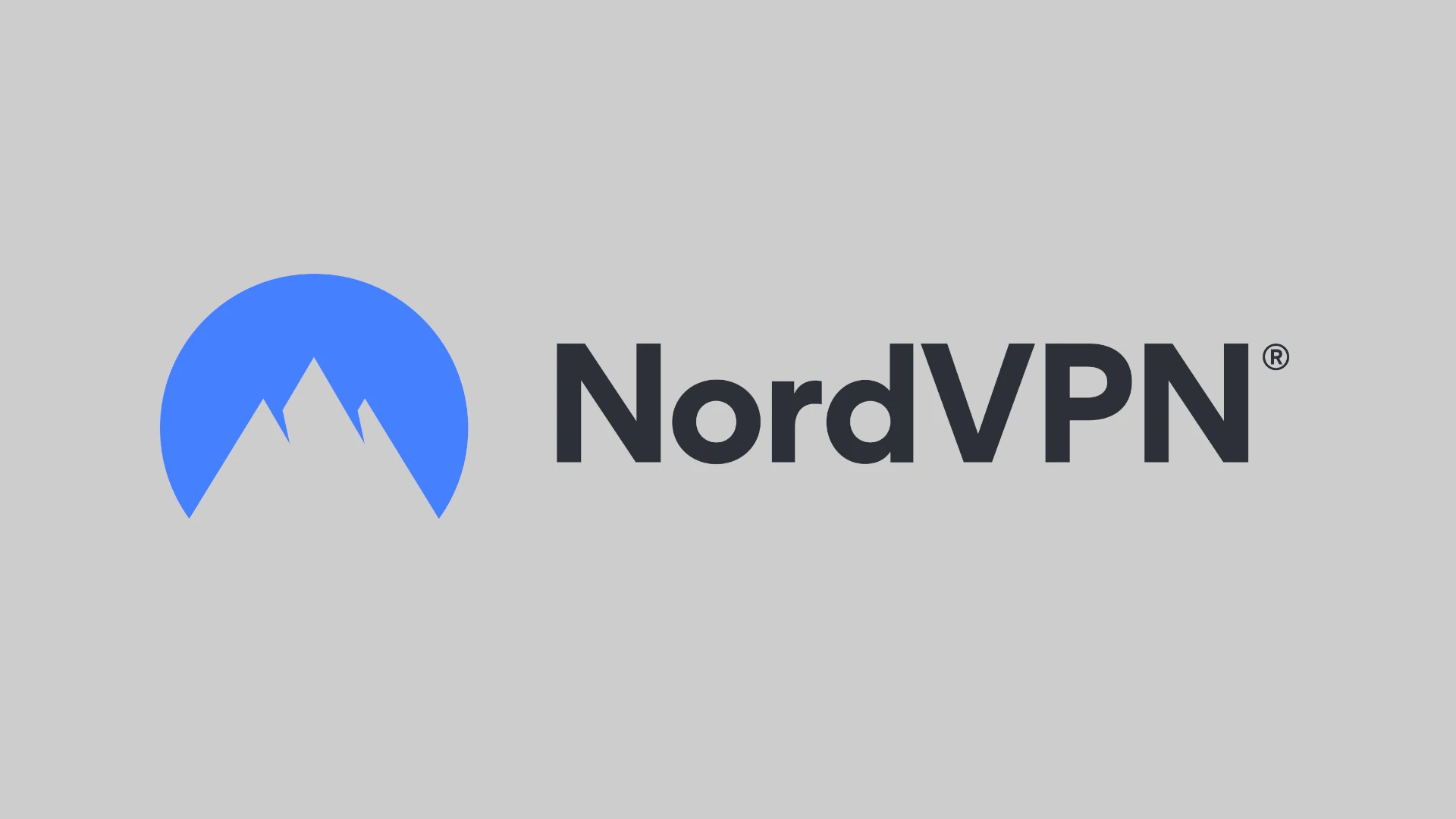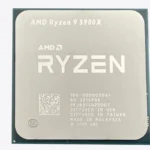In today’s internet landscape, privacy and security have become increasingly important concerns for users. A Virtual Private Network (VPN) serves as a protective shield for your online activities, creating an encrypted tunnel for your data to travel through. A VPN encrypts your internet traffic and routes it through remote servers, hiding your IP address and making it difficult for third parties to track your online activities or steal your data.
When you connect to the internet without a VPN, your internet traffic is exposed to various entities, including your internet service provider, websites you visit, and potential hackers on public Wi-Fi networks. By using a VPN, users can access geo-blocked content, enhance their security while using public Wi-Fi, and prevent their browsing history from being monitored.
VPNs are not just for tech enthusiasts or privacy advocates. Anyone who values their online privacy, needs to secure their internet connection, or wants to bypass geographical restrictions can benefit from using a VPN. Different types of VPNs exist for various purposes, from personal use to business applications that secure company data.
How VPNs Work: The Technology Behind Online Privacy

A Virtual Private Network (VPN) works by creating an encrypted tunnel between your device and a server operated by the VPN provider. Once connected, all your internet traffic is routed through this secure tunnel, hiding your actual IP address and encrypting everything you send and receive. This means third parties — including your internet service provider, public Wi-Fi networks, and even government entities — can’t easily see what you’re doing online.
Under the hood, most VPNs use secure protocols like OpenVPN, WireGuard, or IKEv2/IPSec. These protocols determine how your data is encrypted and transmitted. WireGuard, for instance, is known for its speed and modern cryptographic architecture, while OpenVPN is prized for its security and flexibility across devices.
What a VPN Actually Does for You
1. Hides Your IP Address
Your IP address is like your digital home address — it can reveal your location and identity to websites and trackers. A VPN replaces your real IP with one from its server network, making it appear as though you’re browsing from another region.
2. Encrypts Your Data
When you browse on a regular internet connection, data like passwords, messages, and emails can potentially be intercepted. VPNs encrypt this data using military-grade encryption, making it unreadable to outsiders — especially on unsecured public networks like airport or coffee shop Wi-Fi.
3. Bypasses Geo-Restrictions
Ever tried to stream a show or visit a website only to be told it’s not available in your region? VPNs let you connect to servers in different countries, tricking services into thinking you’re somewhere else, unlocking content that’s otherwise off-limits.
4. Prevents Tracking
Websites, advertisers, and data brokers use sophisticated methods to track your activity across the web. A VPN cuts off access to your browsing history by encrypting it and routing it through anonymous servers, helping you regain control over your digital footprint.
Recent Innovations in VPN Technology
VPNs are evolving fast to meet growing privacy demands. One of the biggest developments is native integration into browsers. For example, some modern browsers are now shipping with built-in VPNs, eliminating the need for third-party apps. This makes VPN access seamless, especially for non-tech-savvy users who just want simple, one-click privacy.
Another key innovation is the rise of multihop or double-VPN connections. This feature routes your traffic through two different VPN servers in separate countries. It adds an extra layer of anonymity, making it nearly impossible for any party to trace your activity from end to end — especially useful for journalists, whistleblowers, or anyone in restrictive regimes.
On mobile, VPN apps are getting smarter and lighter. They now support split tunneling (routing some apps through the VPN while others bypass it), kill switches (cutting your connection if the VPN drops), and ad-blocking capabilities to stop trackers before they load.
When and Why You Should Use a VPN
✔️ On Public Wi-Fi Networks
Public Wi-Fi hotspots are a goldmine for hackers. A VPN protects you from eavesdropping and man-in-the-middle attacks when using networks at airports, hotels, or cafés.
✔️ When Traveling or Living Abroad
If you’re traveling and want to access your home country’s content — like streaming libraries or banking services — a VPN is your best tool for bypassing local restrictions without compromising your security.
✔️ For Everyday Browsing Privacy
Even at home, your ISP can legally collect and sell your browsing data in many countries. Using a VPN prevents them from seeing your activity and builds a stronger wall between you and invasive advertising networks.
What to Look for in a VPN
- No-logs policy: Make sure your VPN doesn’t keep records of your online activities. This is essential for true privacy.
- Strong encryption: Look for AES-256-bit encryption and secure protocols like WireGuard or OpenVPN.
- Kill switch: This feature automatically cuts off your internet connection if the VPN drops, preventing data leaks.
- Speed & server locations: A quality VPN will have fast servers in many countries, minimizing speed drops and allowing for broader content access.
- Cross-device compatibility: Make sure your VPN works across phones, tablets, desktops, routers, and more.
Common Myths About VPNs
“VPNs make you completely anonymous online.”
Not entirely. While VPNs hide your IP and encrypt your traffic, websites can still identify you through cookies, browser fingerprinting, or logged-in accounts. A VPN is a major privacy tool, but not a silver bullet.
“VPNs are only for hackers or criminals.”
That’s outdated thinking. VPNs are now mainstream tools used by businesses, travelers, remote workers, students, and anyone who values digital privacy. In many countries, VPN usage has skyrocketed as people grow more aware of online surveillance and data collection.
“VPNs slow down your internet dramatically.”
While some speed loss is expected due to encryption overhead, modern VPNs are surprisingly fast — especially those that use WireGuard. In some cases, they even improve performance by bypassing ISP throttling.
VPNs Are Becoming Essential, Not Optional
With online tracking more invasive than ever and data breaches making headlines weekly, using a VPN is one of the easiest ways to reclaim your privacy. Whether you’re trying to secure a remote connection, stream content from another country, or just stop advertisers from watching your every move, a VPN is a practical and affordable solution. It’s no longer a niche tool — it’s part of the new normal for responsible internet use.
Key Takeaways
- VPNs create encrypted tunnels that protect your data and mask your IP address while browsing online.
- Using a VPN helps users bypass geographical restrictions and secure connections on public Wi-Fi networks.
- VPN services vary in features, speed, and security protocols, so users should choose one that best fits their specific needs.
Understanding VPNs and Their Purpose
VPNs provide a secure connection between users and the internet by creating an encrypted tunnel for data transmission. They offer privacy protection, secure access to restricted content, and safeguards against data theft.
VPN Defined
A VPN stands for “Virtual Private Network”, a technology that creates an encrypted connection over a less secure network. When activated, a VPN establishes a protected tunnel between your device and the internet.
This encrypted tunnel masks your IP address and shields your online activities from prying eyes. The encryption process happens in real time, converting your data into code that is difficult for unauthorized parties to decipher.
VPNs essentially work by routing your device’s internet connection through a private server rather than your internet service provider (ISP). This prevents third parties from seeing what websites you visit or what data you send and receive online.
Common Uses of VPNs
VPNs serve multiple purposes in our connected world. Many users employ VPNs to enhance online privacy and security when using public Wi-Fi networks, such as those in coffee shops or airports.
Another common application is bypassing geographical restrictions. VPNs allow users to access region-locked content by connecting to servers in different countries.
Key VPN Applications:
- Protecting sensitive data when using public Wi-Fi
- Accessing region-restricted streaming content
- Preventing bandwidth throttling by ISPs
- Avoiding targeted advertising based on browsing habits
- Secure online banking and shopping
- Anonymous web browsing
Business travelers often use VPNs to access company resources securely while working remotely.
Personal VPN vs. Corporate VPN
Personal VPNs and corporate VPNs serve different purposes despite using similar technology. Personal VPNs focus primarily on individual privacy and security needs. These services are typically subscription-based and marketed directly to consumers.
Users select personal VPNs based on factors like speed, server locations, and privacy policies. They’re ideal for streaming content, protecting personal data, and maintaining anonymity online.
Corporate VPNs, however, prioritize secure access to internal company resources. They create secure connections for employees to access sensitive business networks from remote locations.
Comparison of VPN Types:
| Feature | Personal VPN | Corporate VPN |
|---|---|---|
| Primary Purpose | Individual privacy and security | Secure access to company resources |
| User Base | Individual consumers | Company employees |
| Configuration | User-friendly, simple setup | IT-managed, complex security policies |
| Cost Structure | Monthly/annual subscription | Enterprise licensing |
| Focus | Global server access, streaming | Internal network access, data protection |
Commercial VPN providers typically offer intuitive apps and customer support, while corporate VPNs may require IT assistance for setup and troubleshooting.
How VPNs Work
VPNs create secure connections between devices and networks by using specialized protocols and encryption techniques. They establish private tunnels through public networks, protecting data from unauthorized access.
Encryption Fundamentals
Encryption is the cornerstone of VPN security. It transforms readable data into coded information that only authorized parties can decrypt. When using a VPN, all internet traffic is encrypted before leaving the device.
This encryption process uses complex mathematical algorithms to scramble data. Most modern VPNs employ AES (Advanced Encryption Standard) with 256-bit keys, which is virtually unbreakable with current technology.
VPNs also use handshake protocols to verify the authenticity of connections. This prevents man-in-the-middle attacks where hackers might try to intercept communications.
Tunneling Explained
Tunneling creates a secure pathway for data transmission across the internet. It works by encapsulating one network protocol within another, essentially hiding your data inside a protected tunnel.
When you connect to a VPN, it establishes an encrypted tunnel between your device and the VPN server. Your internet traffic flows through this tunnel, shielded from ISPs, hackers, and other third parties.
The VPN server acts as an intermediary between you and the websites you visit. Websites see the VPN server’s IP address rather than yours, adding another layer of privacy protection.
Types of VPN Tunnels
VPNs use various tunneling protocols, each with distinct features:
PPTP (Point-to-Point Tunneling Protocol)
- Fast speeds but less secure
- Supported by most devices
- Good for streaming but not recommended for sensitive activities
L2TP/IPSec (Layer 2 Tunneling Protocol)
- More secure than PPTP
- Slightly slower due to double encapsulation
- Difficult to block but can be challenging to configure
OpenVPN
- Open-source and highly secure
- Extremely flexible and reliable
- Available on most platforms but requires third-party software
WireGuard
- Newest protocol with modern cryptography
- Faster and more efficient than older protocols
- Smaller codebase means fewer potential vulnerabilities
SSTP (Secure Socket Tunneling Protocol)
- Microsoft-developed protocol
- Difficult to block and quite secure
- Limited primarily to Windows systems
VPN Components and Technology
A Virtual Private Network consists of multiple components working together to create secure, encrypted connections. These components implement various technologies to establish tunnels that protect data transmission across public networks.
VPN Client and Server Interaction
The VPN client is software installed on the user’s device that initiates the secure connection. When a user activates their VPN, the client authenticates with the VPN server using credentials or certificates.
VPN servers act as the intermediary between the client and the internet. They receive encrypted data from clients, decrypt it, and forward requests to the intended destination. When responses arrive, the server encrypts them before sending them back to the client.
This client-server model creates a secure “tunnel” through which all internet traffic passes. The tunnel prevents internet service providers, hackers, and other third parties from viewing or intercepting the data being transmitted.
Authentication protocols ensure only authorized users can connect to the VPN server. These may include username/password combinations, digital certificates, or two-factor authentication methods for enhanced security.
Protocols and Encryption Standards
VPN implementations use various tunneling protocols to establish secure connections. Each protocol offers different advantages:
- OpenVPN: Open-source protocol offering excellent security and flexibility
- WireGuard: Newer protocol known for speed and simplified codebase
- IPSec/L2TP: Combined protocols providing strong security
- PPTP: Older protocol with compatibility benefits but weaker security
- SSTP: Microsoft-developed protocol that can bypass some firewalls
Encryption algorithms protect data from unauthorized access. Modern VPNs typically use AES-256 encryption, which offers military-grade protection. The encryption process converts readable data into coded information that can only be decoded with the proper encryption key.
Perfect Forward Secrecy (PFS) is an advanced feature that generates new encryption keys for each session. This ensures that if one session is compromised, past and future sessions remain secure.
Advanced VPN Features
Modern VPNs include additional security features beyond basic encryption. Kill switches automatically disconnect internet access if the VPN connection drops, preventing accidental data exposure.
Split tunneling allows users to route some traffic through the VPN while other traffic uses their regular internet connection. This optimizes performance for applications that don’t require security while maintaining protection for sensitive data.
Advanced VPN Feature Comparison
------------------------------------------
Feature | Benefit
------------------------------------------
Kill Switch | Prevents data leaks if VPN disconnects
Split Tunneling | Optimizes speed for non-sensitive traffic
Multi-hop Connections| Adds layers of encryption through multiple servers
DNS Leak Protection | Ensures DNS requests remain private
Two-Factor Auth | Adds additional security layer for access
DNS leak protection prevents a common vulnerability where DNS requests bypass the VPN tunnel. By routing all DNS queries through the VPN’s secure servers, this feature maintains privacy for all web browsing activities.
Enterprise VPN solutions often implement additional components such as centralized management consoles, user access controls, and detailed connection logging for compliance purposes.
Benefits of Using a VPN
VPNs provide essential protections for internet users through strong encryption and privacy features. They shield sensitive data from hackers and allow access to geo-restricted content while maintaining anonymity online.
Security and Data Protection
A VPN creates a secure connection between your device and the internet through powerful encryption. This encryption acts like a protective tunnel that shields your personal information from hackers, government surveillance, and other third parties.
When using public Wi-Fi networks at cafes, airports, or hotels, your data becomes especially vulnerable. Hackers can easily intercept unprotected connections to steal passwords, credit card details, and other sensitive information. A VPN enhances security by encrypting all your traffic, making it unreadable to anyone attempting to spy on your activities.
For businesses, VPNs provide secure remote access to company resources. Employees can safely connect to internal networks from anywhere without exposing corporate data to security risks.
Key Security Benefits:
- Protects against man-in-the-middle attacks
- Prevents data theft on public networks
- Secures business communications
- Shields sensitive information during file transfers
Enhanced Privacy and Anonymity
VPNs effectively mask your IP address, replacing it with that of the VPN server. This creates a layer of anonymity that makes it difficult for websites, advertisers, and other entities to track your online activities or determine your physical location.
Internet service providers (ISPs) typically log your browsing history and may share this data with advertisers or government agencies. Using a VPN prevents your ISP from seeing what sites you visit or content you access.
Many VPN services maintain strict no-logs policies, ensuring they don’t store records of your online activities. This adds another layer of privacy protection, as there’s no data to hand over even if authorities make requests.
Privacy Protection Features:
- IP address masking
- Prevention of ISP tracking
- Protection from targeted advertising
- Reduced digital footprint
Access and Streaming Flexibility
One popular VPN benefit is the ability to bypass geo-restrictions that limit content based on your location. Users can access streaming services, websites, and applications that might be blocked in their region by connecting to servers in different countries.
Travelers can use VPNs to access their home country’s services while abroad. This allows continued use of banking apps, streaming subscriptions, and other location-specific content that might otherwise be unavailable during international travel.
Some ISPs deliberately slow down (throttle) certain types of internet traffic, particularly for streaming or downloading. A VPN prevents this throttling by hiding the nature of your internet traffic from your provider, potentially resulting in better speeds for these activities.
Access Benefits:
- Bypass geographical restrictions
- Access region-specific content
- Avoid bandwidth throttling
- Maintain access to home services while traveling
Security Aspects of VPNs
VPNs provide multiple layers of protection for users accessing the internet. These security tools employ encryption, authentication protocols, and specialized configurations to safeguard data transmission and shield users from various online threats.
Protecting Against Cyber Threats
VPNs create a secure connection between users and the internet by encrypting data traffic. This encryption transforms readable data into an unreadable format that can only be decoded with the proper key.
A major benefit of VPNs is protection against packet sniffing, where attackers intercept data packets traveling across networks. Without encryption, these packets contain information in plain text that can be easily read.
VPNs also guard against Man-in-the-Middle attacks, where hackers position themselves between a user and a website to steal information. By creating an encrypted tunnel, VPNs prevent attackers from accessing or modifying data in transit.
Public Wi-Fi networks pose significant risks, as they often lack proper security measures. VPNs provide an essential shield when using these networks by encrypting all traffic.
Dealing with Vulnerabilities
Despite their protective capabilities, VPNs have potential weaknesses that users should understand. IP and DNS leaks can occur when VPN connections fail, potentially revealing a user’s true location and browsing activity.
Common VPN Vulnerabilities:
- Outdated encryption protocols
- Weak authentication methods
- Split tunneling risks
- WebRTC leaks
- Unpatched software
Regular software updates are critical for VPN security as they patch known vulnerabilities. Users should enable automatic updates or check frequently for new versions of their VPN applications.
Not all VPNs offer equal protection. Free VPNs often have weaker security measures and might even log user data. Users should research providers carefully before making a selection.
VPN kill switches provide an important safety feature by cutting internet access if the VPN connection drops unexpectedly. This prevents unprotected data transmission.
Authentication and Access Control
Strong authentication mechanisms form the backbone of VPN security. These systems verify user identities before granting access to protected networks and resources.
Two-factor authentication adds an essential layer of security beyond passwords. This requires users to provide something they know (password) and something they have (like a mobile device for verification codes).
Effective VPN Authentication Methods:
- Digital certificates
- Biometric verification
- Hardware tokens
- Smart cards
- One-time passwords
Access control policies define which resources users can access once connected to a VPN. These policies can be based on user roles, time of day, location, and other factors.
VPN logs can help identify unauthorized access attempts and potential security breaches. However, privacy-focused VPNs often maintain no-logs policies to protect user privacy.
User education plays a vital role in VPN security. Organizations should train users on proper VPN use, password management, and recognizing phishing attempts that target VPN credentials.
Setting Up a VPN
Setting up a Virtual Private Network requires several key steps to ensure your online activities remain secure and private. The process involves selecting a reliable service provider, installing the necessary software, and configuring it properly for your specific needs.
Choosing a VPN Provider
When selecting a VPN service, security features should be the top priority. Look for providers that offer strong encryption protocols like OpenVPN or WireGuard and maintain a strict no-logs policy to enhance your online privacy.
Price is another important factor. Premium VPN services typically cost between $3-12 per month, with discounts for longer subscriptions. Free VPNs exist but often come with limitations such as data caps, fewer server options, or potential privacy concerns.
Server network size matters for performance and global access. Top providers offer thousands of servers across numerous countries, giving users more options to bypass geo-restrictions and find faster connections.
Consider these key features when comparing providers:
- Kill switch functionality
- Number of simultaneous device connections
- Compatibility with your devices
- Customer support quality
- Money-back guarantee period
Installation and Configuration
After choosing a VPN provider, setting up the VPN is straightforward. Most premium services offer dedicated apps for major platforms (Windows, macOS, iOS, Android), making installation as simple as downloading from the provider’s website or app store.
Once installed, users typically need to:
- Create or log into their account
- Select a server location
- Connect with a single click
Advanced users can customize their VPN configuration. Options often include:
- Protocol selection: Choose between speed (WireGuard) or compatibility (OpenVPN)
- Split tunneling: Direct only specific apps through the VPN
- DNS settings: Use the provider’s DNS or custom alternatives
Most VPN clients automatically select optimal settings, but users experiencing connection issues might need to try different servers or protocols. The VPN establishes an encrypted connection between the client device and VPN server, routing internet traffic through this secure tunnel away from the ISP’s monitoring.
VPN for Mobile and Remote Work
Remote workers increasingly rely on VPNs to access company resources securely. Corporate VPNs provide employees with protected connections to internal networks, allowing them to safely access sensitive data while working from home or public Wi-Fi.
Setting up a VPN on mobile devices follows similar steps to desktop installation. Most providers offer dedicated apps for Android and iOS that can be downloaded from respective app stores. After installation, users simply log in and connect to their preferred server.
Battery consumption is a consideration for mobile VPN usage. Some tips for efficient use include:
- Connect only when needed
- Choose nearby servers to reduce latency
- Use lighter protocols when battery preservation is critical
Business travelers should set up their VPN before departure, especially when visiting countries with internet restrictions. Some nations block VPN services, so having everything configured in advance is essential for maintaining secure communications while abroad.
VPN Considerations and Best Practices
Implementing a Virtual Private Network requires careful planning and adherence to security protocols to maximize protection. Different VPN configurations serve various needs, while regular maintenance and understanding legal limitations ensure optimal performance.
Selecting the Right VPN
When choosing a VPN service, encryption strength should be a top priority. Strong encryption is the foundation of VPN security, determining how difficult it is for attackers to intercept data. Look for services offering AES-256 encryption, which provides military-grade protection.
Consider these factors when evaluating options:
- Protocol support: OpenVPN, WireGuard, and IKEv2 offer better security than outdated protocols like PPTP
- No-logs policy: Ensures your online activities aren’t recorded
- Server locations: More locations provide better access options
- Device compatibility: Must support all your devices
Many free VPNs collect user data or display ads to generate revenue. Paid services typically offer better security guarantees and performance reliability.
CISA and NSA recommend standards-based VPN solutions that follow federal guidelines for security, particularly for organizations handling sensitive information.
Performance and Reliability
VPN connections inevitably create some latency since traffic must route through additional servers. This performance impact varies significantly between providers and server locations.
Premium VPN services typically offer:
| Feature | Benefit |
|---|---|
| Higher bandwidth | Faster downloads and streaming |
| More server options | Reduced congestion and lower ping |
| Better infrastructure | Fewer disconnections |
To optimize performance, connect to servers geographically closer to your location. Many VPNs offer speed-test tools to help identify the fastest server options.
Split tunneling allows routing some traffic through the VPN while other data travels directly through your ISP. This reduces congestion for low-security tasks while maintaining protection for sensitive activities.
Regular software updates are crucial. Neglecting updates leaves systems vulnerable to known security flaws. Configure automatic updates where possible to ensure continuous protection.
Legal and Ethical Implications
VPN usage has varying legality across different countries and regions. While legal in most Western countries, VPNs face restrictions or outright bans in places like China, Russia, and the UAE.
Users should understand these key legal considerations:
- VPNs don’t provide immunity from illegal activities
- Terms of service violations (like circumventing streaming geo-restrictions) may result in account termination
- Some countries require VPN providers to maintain activity logs
Many Internet Service Providers implement data caps and traffic shaping. A VPN helps prevent ISP throttling based on content type, ensuring consistent speeds regardless of activity.
While VPNs enhance privacy, they shouldn’t replace common-sense security practices. Using strong passwords, enabling two-factor authentication, and maintaining security awareness remain essential elements of a comprehensive security approach.
For businesses, VPN usage policies should clearly define acceptable use cases and security requirements for remote workers accessing company resources.
VPN and Network Types
Virtual Private Networks offer different connection methods based on specific networking needs. These network types vary in how they establish connections, their security protocols, and their typical use cases across business and personal applications.
Remote Access VPN
Remote Access VPN creates a secure connection between an individual user and a private network. This type allows employees or individuals to connect to a company network from remote locations.
The connection works by installing VPN client software on the user’s device. When activated, the software establishes an encrypted tunnel to the VPN server, which then grants access to network resources.
Key benefits include:
- Flexibility: Users can connect from anywhere with internet access
- Security: Data travels through encrypted tunnels
- Cost-effectiveness: Eliminates need for leased lines
Remote Access VPNs commonly use protocols like IPsec and OpenVPN. They’re particularly valuable for traveling employees, remote workers, and companies with bring-your-own-device policies.
Site-to-Site VPN
Site-to-Site VPN connects entire networks to each other, rather than individual users to a network. They’re primarily used by businesses with multiple locations that need to share resources securely.
These VPNs create permanent encrypted connections between offices, typically implemented through VPN-enabled routers or firewalls at each location. No client software is needed on individual devices.
Two main subcategories exist:
- Intranet-based: Connects multiple company locations within the same organization
- Extranet-based: Connects a company with external partners or suppliers
Site-to-Site VPNs frequently use IPsec protocols for authentication and encryption. They provide seamless resource sharing while maintaining security between geographically separated offices.
SSL VPN and Others
SSL VPN utilizes the Secure Sockets Layer protocol to provide secure remote access through web browsers. Unlike traditional VPNs, SSL VPNs often don’t require specialized client software installation.
Users can connect through a standard web browser, making deployment simpler. SSL VPNs come in two forms:
- SSL Portal VPNs: Provide access through a single HTTPS website
- SSL Tunnel VPNs: Allow access to multiple network services
Other specialized VPN types include Double VPNs, which route traffic through two separate VPN servers for added encryption layers. This creates two encryption layers but may reduce connection speeds.
Mobile VPNs maintain secure connections even when switching networks or experiencing temporary disconnections. They’re designed specifically for users on phones or tablets who frequently change between WiFi and cellular connections.
VPN in Different Environments
Virtual Private Networks (VPNs) serve various purposes across different settings, adapting to the specific security needs and connectivity requirements of each environment. The implementation of VPN technology varies significantly between personal use, corporate environments, and academic institutions.
Home and Personal Use
For individuals, VPNs primarily protect privacy and security when connecting to the internet. Many people use VPNs to shield their browsing activities from internet service providers and potential hackers, especially when using public Wi-Fi networks at cafes, airports, or hotels.
Personal VPN users often focus on:
- Privacy protection from data collection
- Secure access to streaming services
- Bypassing geographical restrictions on content
- Protection against identity theft when shopping online
Recent improvements in consumer VPN apps have made them much easier to use. Most now offer one-click connections and automatic server selection. Many personal VPNs cost between $3-12 per month, with some free options available with limited features.
The best personal VPNs balance speed, security, and user-friendliness. They encrypt data with AES-256 encryption and use secure protocols like WireGuard or OpenVPN.
Business and Corporate Use
Businesses implement VPNs to create secure connections for remote workers accessing company resources. Corporate VPNs extend the private network across public networks, enabling employees to safely connect to the company intranet from any location.
Key business VPN applications include:
| Purpose | Benefit |
|---|---|
| Remote workforce security | Protects sensitive data when employees work from home |
| Branch office connectivity | Links multiple locations to the main office network |
| Secure partner access | Provides controlled extranet access to vendors and partners |
| Regulatory compliance | Helps meet data protection requirements |
Business VPN solutions typically offer more advanced features than consumer versions. These include dedicated IP addresses, centralized management, user access controls, and detailed connection logs.
Many companies now use split tunneling to optimize performance. This directs only business-related traffic through the VPN while allowing other internet traffic to flow normally.
Educational and Research Institutions
Academic institutions implement VPNs to provide students and faculty with secure access to educational resources from off-campus locations. These networks help protect sensitive research data and intellectual property while enabling collaboration.
Educational VPNs commonly support:
- Remote access to digital libraries and subscription journals
- Secure file sharing between research teams
- Protected access to student records and administrative systems
- International research collaboration across borders
Universities often configure VPNs with specific department-based access levels. This ensures students and researchers can only access resources relevant to their studies or projects.
Many educational institutions now integrate their VPN systems with Single Sign-On (SSO) solutions. This lets users access multiple applications with one authentication step, improving both security and convenience.







